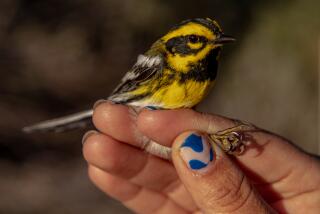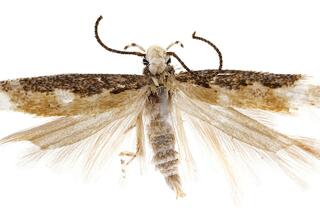Names From a Slower, More Elegant Time
- Share via
In these hurried times, when everything is packaged, speeded-up, condensed and streamlined, we have discarded the mellifluous female names of a more leisurely and elegant era.
“Life, time, action and thought being compressed for various reasons in our era,” laments Joseph P. Krengel of Santa Monica, “all conduce to shorter names. Time was when the ornate was acceptable at christenings, especially for the female gender.”
Krengel recalls specifically the name of an illustrious opera singer of the middle 19th Century. She was Euphrosyne Parepa-Rosa. Krengel says Abraham Lincoln was very impressed with Euphrosyne Parepa-Rosa’s voice and bearing.
Many names of that era had Greco-Roman origins, he notes, which accounted for their grandiloquence. Another that rings his bell is Sophonisba Anguissola, an eminent Italian artist of the late Renaissance--a time when women were not easily accepted in that field.
According to Webster’s Biographical Dictionary, Euphrosyne Parepa-Rosa, an English operatic soprano, was born Parepa de Boyesku in 1836, and married Carl Rosa in New York in 1867. I find the Italian artist listed as Sofonisba Anguisciola or Angussola (1535-1626?). She was noted for her self-portraits.
Another opera singer who was closer to our times was the great soprano Amelita Galli-Curci. Along with Enrico Caruso, Amelita Galli-Curci introduced me to grand opera through records played on our windup Victor phonograph. It was a name that, once learned, was not easily forgotten.
“I like the name Euridice,” says Krengel. “It conjures up a stately lady of a kind that one saw as a caryatid, supporting a hallowed Grecian temple. The native Grecian of now will pronounce that name properly.”
Krengel recalls the glamour that the name Cleopatra gave to a paddle-wheeler that plied the Hudson in the ‘40s and ‘50s of the 19th Century. “It drew attention of all on shore. It became regal and theatrical. It was as if ‘someone’ floated by, not just a plain white-painted boat. We’ve no patience for such today.”
True, as Krengel says, most girls today are named Susan or Debbie or Liz or Karla or Stevie; but now and then one encounters a name of true old-fashioned grandeur.
For some time I have been saving a list of resplendent names, both male and female, collected by Jack Mark of Camarillo. They include Mikhail Baryshnikov, the dancer; Gen. Wojciech Jaruzelski, Polish leader; Pia Zadora, singer; Arnold Schwarzenegger, actor; Corazon Aquino, president of the Philippines; Lee Iacocca, Chrysler executive; and Manucher Ghorbanifar, Iranian arms dealer.
No Jacks, Freds or Amys in that group.
For bizarre names, though, perhaps no list surpasses that of John Train, author of “Remarkable Names of Real People.” He swears to the authenticity of Ming Toy Epstein, Aristotle Tottle, Charles Adolphe Faux-Pas Bidet, Iona Victory Bond, Mary Louise Pantzaroff, Gisella Werberserch-Piffel, and Bathsheba Finkelstein.
My favorite list was compiled over a period of years from customers of a Bank of America in Beverly Hills. It included such gems as Vera Klopp Dodder, Audreygay Zook, Bittersweet Wojtlya, Prior Love Thurston, Cyrus S. Clutterbrick, Yaffa Z. Flitterman and Olive Orchard.
Names run in fashions. Parents will name a daughter Jennifer, thinking it pretty and fresh and different, only to find out, when she goes to school, that half a dozen of her classmates have the same name. In recent years such names as Nathan, Tamara, Stacy, Alexander, Emily, Daniel and Hayley have been in vogue. It is odd that Emily, a name associated with Emily Dickinson and everything Victorian, should emerge again in this revolutionary age. I only know one Tamara, but I suppose my grandsons will be acquainted with dozens of them.
Of course parents who have common last names, like Smith, are inclined to give their children unusual first names, as a means of lifting them out of the ordinary. Smiths hoping to confer distinction on their offspring have given them such names as Loyal Lodge No. 296 Knights of Pythias Ponca City Oklahoma Smith, William McKinley Louisana Levee Bust Smith, 5/8 Smith, and Another Smith. Five daughters of the Rev. Zephaniah Smith were named Hancy Zephinia, Cyrinthia Sacretia, Laurilla Aleroyla, Julia Evelina and Abby Hadassah Smith, who, not surprisingly, became feminists.
I’m glad my parents weren’t imaginative or pretentious. But sometimes I wonder how I’d have turned out if they’d named me Omar Khayyam.
More to Read
The biggest entertainment stories
Get our big stories about Hollywood, film, television, music, arts, culture and more right in your inbox as soon as they publish.
You may occasionally receive promotional content from the Los Angeles Times.










